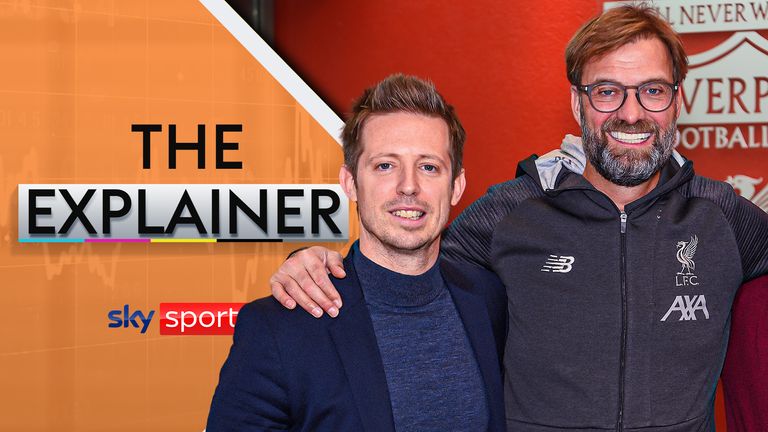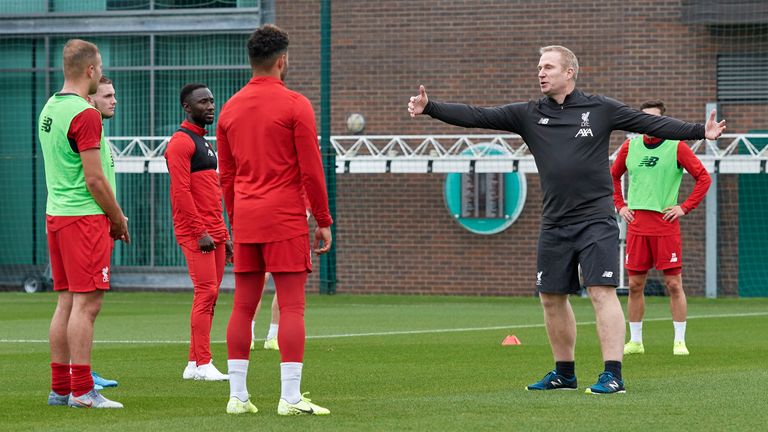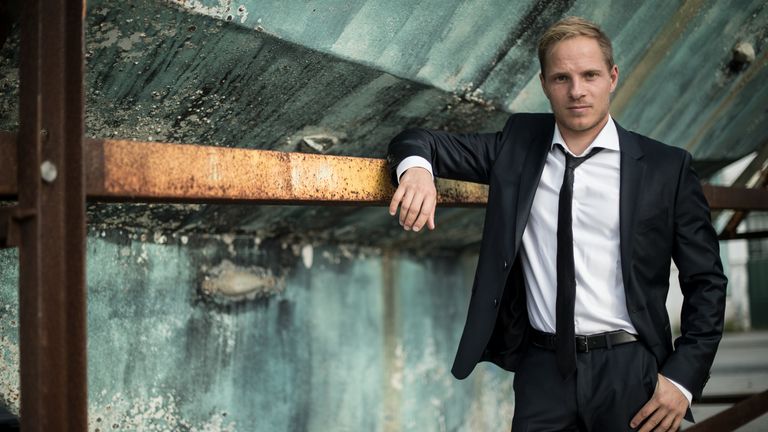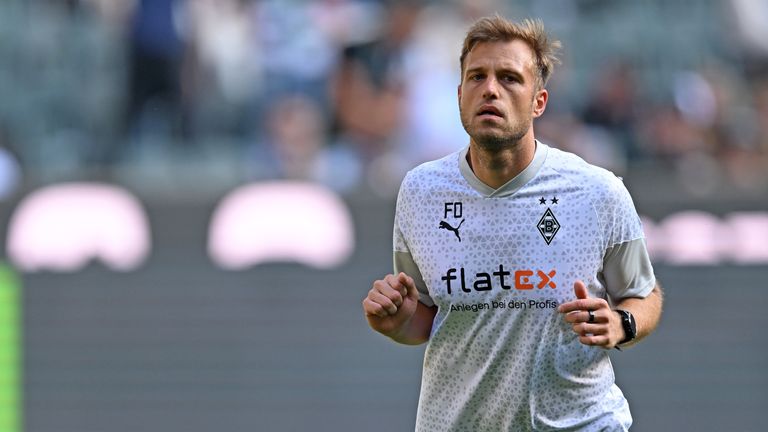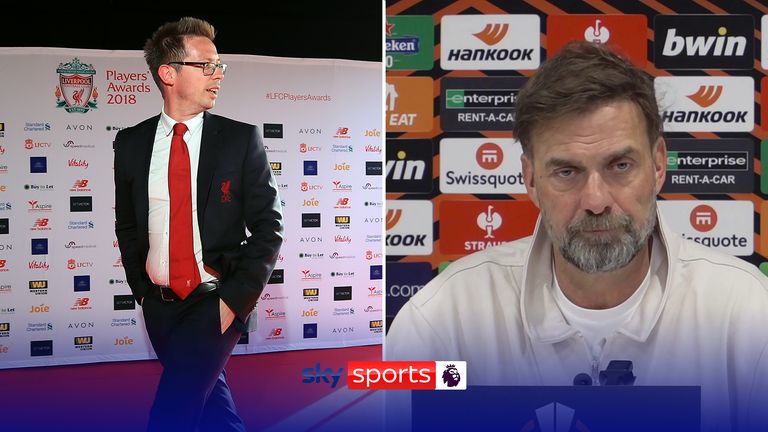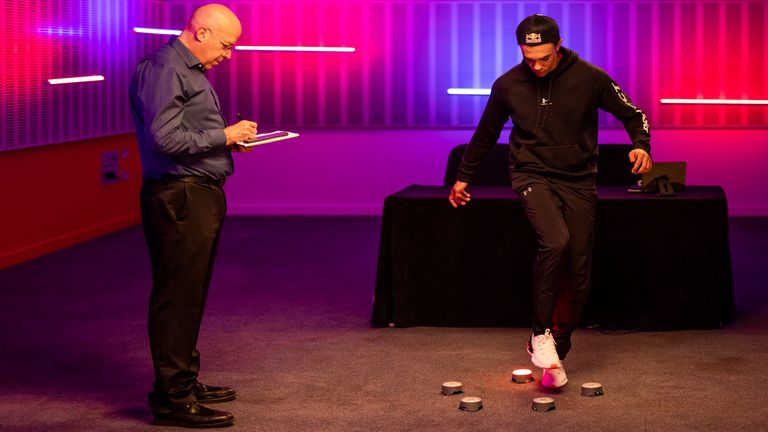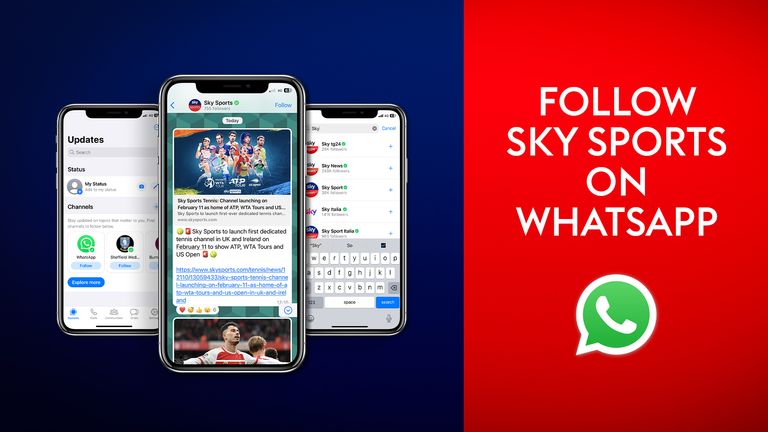As the Harvard Business Review puts it, one of the most difficult transitions for leaders to make is the shift from doing to leading. Jurgen Klopp is a fine coach. But he became an even better leader because of his willingness to embrace new people and new ideas.
His Liverpool side have evolved tactically, adjusting to the trends in the game, but what has made Klopp so successful extends beyond the action on the pitch. It is about the learning culture at Liverpool, the openness to improve. It might be his biggest legacy.
The Dunning-Kruger effect is a cognitive bias in which people with limited competence in a particular domain overestimate their ability. It is rife in football’s insular world where the tendency is to avoid outsiders altogether. Klopp rose above this and reaped the benefits.
Time and again he has shown himself willing to learn from experts. It is one thing to delegate coaching responsibility to someone who it is hoped will coach in a similar way. Introducing coaches who are going to change the way things are done is quite another.
Perhaps the most notorious example at Liverpool is the deployment of Thomas Gronnemark as a specialist throw-in coach. There were those in football who derided this decision – Richard Keys and Andy Gray chuckling like schoolboys at the mere notion of it.
Klopp had no interest in how things had always been done. His only concern was whether it could be done better. “When I heard about Thomas Gronnemark, it was clear to me I wanted to meet him. When I met him, it was 100 per cent clear I wanted to employ him.”
Speaking to Gronnemark in 2020 about his role at Liverpool, the detail that went into his work was immediately obvious. The Dane explained in easy-to-understand language how he could improve a team’s outcomes – and the input was tactical as well as technical.
He was used to being mocked. “Ever since I started in 2004, people have been laughing at the idea of throw-in coaching,” Gronnemark told Sky Sports. “It is too weird for some people.” But not Klopp. What does that tell us about him and people like him?
“They get in touch because they are innovative and they are open-minded,” Gronnemark explained. “They are always thinking of new ways to improve.” Liverpool went from third last for retaining the ball under pressure from throw-ins to the best in the Premier League.
If the throw-in example is too granular, its impact on results not tangible enough, how about Klopp’s decision to turn to Niklas Hausler and Patrick Hantschke of neuro11? He credits their work on penalty psychology for two of Liverpool’s shoot-out wins at Wembley.
Klopp’s team defeated Chelsea in the finals of both the Carabao Cup and the FA Cup in 2022, scoring 17 of their 18 penalties. It was the first season in which they had worked with neuro11, who gave the players the tools to focus in those high-pressure moments.
Speaking to Hausler later that year, he explained the process. “We can know what helps the player to get into this automatic state, into what is known by many people as the zone. We literally measure the brain waves and feed it back to the player,” he told Sky Sports.
“We help the player to understand what things help them to optimise their routine. What is it that helps them and what is it that distracts them? I think that is unique. It is the first time in professional sports that this has been done. The results have been shown.”
That work with Liverpool is ongoing. “They work for us,” said Klopp before this season’s Carabao Cup semi-final. “They were here last week because there was the potential of a penalty shootout against Fulham. We will definitely do something before the final.”
How about something more abstract? A session with famed big-wave surfer Sebastian Steudtner is not necessarily going to win Liverpool a trophy. But Klopp still invited him to share his expertise in 2020, working on underwater breathing techniques with the players.
“It was absolutely incredible, we had players [holding their breath] for nearly three minutes,” said Klopp of that experience with Steudtner. “Three minutes! After half an hour of teaching. That only means you can perform more than you ever imagined.
“I was very interested in what he had to say about how he deals with pressure. If he surfs the highest wave he ever saw, then he is waiting the whole year for the next one, maybe two years. It is just so obvious where the similarities are.”
Maybe it is just his mindset. Klopp’s outlook extends beyond what could help Liverpool. In 2021, when speaking to now Borussia Monchengladbach goalkeeper coach Fabian Otte, he revealed a story about Klopp that provides an insight into his natural curiosity.
Otte was at Burnley, warming up the goalkeepers before a game against Liverpool. “He started smiling at me,” he told Sky Sports. “Obviously, Jurgen Klopp is a big name, I have heard about him, read about him and watched him on TV for many years. I just waved back.
“When I got back to the changing room, the kitman said, ‘Jurgen Klopp was just asking about you. He said he read this piece about you and was interested.’ Afterwards, I spoke to him for quite a while and he was such a cool person. It was a very interesting experience.
“This is the Liverpool manager. He could have a thousand better things to do than read about me but he knew so many details.
“This is a very German word but when there is someone people instantly like as a leader, they call him a Menschenfanger. Literally, it means someone who catches people in a very positive way, people just come towards him.
“It got me thinking. If he is interested in me that much, how interested would he be in the staff members who he hires and works with on a daily basis? Instantly, you could imagine following him. This is the trait of a very good leader.”
As Klopp prepares to depart Liverpool, it is natural to wonder what the impact of his exit will be. With the return of Michael Edwards, the club has already acted to help ensure the culture continues. But when a leader leaves, there can be a vacuum.
History would suggest that it might be a problem. If there is hope, it comes not only from the recruitment decisions of Edwards and his colleagues but the environment that Klopp has worked to create at Liverpool. Curious players who are still open to learning.
When Trent Alexander-Arnold began trying to improve his peripheral vision with ophthalmologist Dr Daniel Laby, it was, ostensibly, a marketing project for Red Bull. But speaking to the Liverpool player about it, his approach to the challenge explained a lot.
“It is about the little one per cents. As an individual, you need to find something to put yourself ahead of the rest,” Alexander-Arnold told Sky Sports. “The margins are fine. It might not make the difference day to day but it might just be the difference in one or two games this season where I have seen a pass and I have been able to play it because of the extra work that I have been putting in off the pitch.”
It could have been Klopp talking that day.
His Liverpool legacy will be felt in many ways. Throw-in coaches and surfers will not be the first elements of his time at Anfield that spring to mind when the eulogies are delivered. But in their own way, they reveal plenty about the person – and the secrets of his success.
Get Sky Sports on WhatsApp!
You can now start receiving messages and alerts for the latest breaking sports news, analysis, in-depth features and videos from our dedicated WhatsApp channel!



